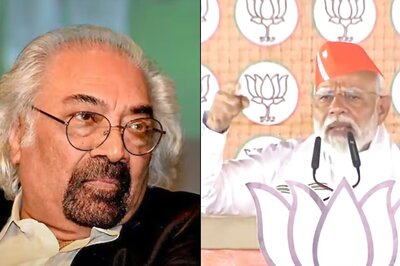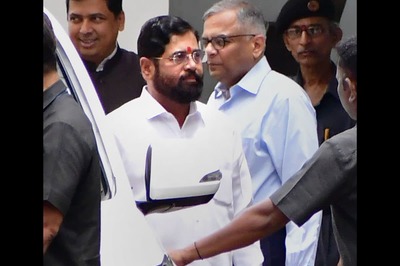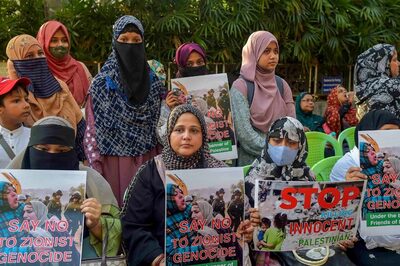
views
The ban on the public screening of ‘Papilio Buddha’, a film chronicling the life of displaced Dalits, by the Central Board of Film Certification (CBFC) is essentially fascistic in nature, said its director Jayan K Cherian.
He was addressing the media after the film’s screening here other day. “The film is based on real-life instances and the Censor Board insists on editing the film in a style which will mutilate its political angle,” he added.
Censor certificate was denied to the film for its portrayal of extreme violence and scenes denigrating Mahatma Gandhi. The film has visuals of garlanding the effigy of Gandhi with chappals and burning it, along with referring to Gandhi as a homosexual. The film also contains scenes showing Dalits being brutally tortured by the police, disrobing a woman and gang rape.
“Nobody has ever questioned whatever is written by Gandhi. If there is no censorship for newspapers, magazines or other periodicals, why should cinema, which fundamentally is an art form, be censored?” asked Thampi Antony, one of the producers.
Director Jayan K Cherian said the ban is a deplorable act that curtails the freedom of expression. “Attempts at strangling creativity and barring art house productions from reaching the masses is condemnable. In the film, we have tried to re-frame the historical references and if you are denied the space for a counter-narrative what is the point in calling India a democratic country?,’’ he asked.
‘Papilio Buddha’ is about a group of untouchables in the Western Ghats who convert to Buddhism as a means to escape casteist oppression. As per the press statement given by the makers, the film “explores the new identity - political uprising based on Ambedkarism, gaining momentum among the Dalits in the region, in the milieu of an ongoing land struggle.”
The film’s producer Prakash Bare and lead actors Sreekumar and Saritha also participated at the press meet.



















Comments
0 comment